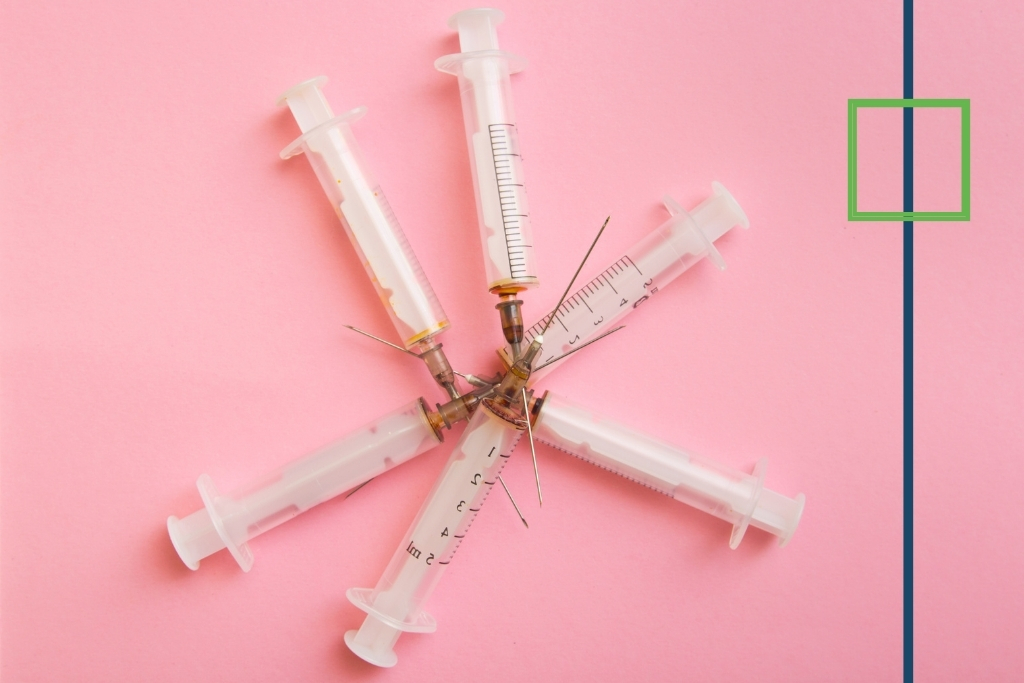Get a free mental health assessment and find out what treatment options are most suitable for you. We Level Up Florida can help with inpatient primary mental health therapy. Depending on the extent of secondary behavioral disorders such as addiction we can first help assess your condition and thereafter guide you to suitable treatment options.
Heroin is an illicit, highly addictive drug. It is either the most abused or the most rapidly acting member of opioids. Heroin is highly addictive and lethal. Regular use of heroin can lead to increased tolerance. In essence, users need more and more drugs to have the same effect, at higher doses over time. Therefore, the body becomes dependent on it. Heroin addiction treatment is available for people who are ready to take their life back.
Heroin enters the brain rapidly and binds to opioid receptors on cells located in many areas, especially those involved in feelings of pain and pleasure and in controlling heart rate, sleeping, and breathing.
Effects of Heroin
Many people who have tried to beat their addiction have relapsed or returned to it several times after a period of sobriety. Heroin is one of the most addictive substances in existence, and an addiction to this drug is hard to overcome without professional heroin addiction treatment. Addiction to heroin is treatable. Although it is possible to recover from heroin addiction, it’s not easy.
Long-term effects of heroin include:
- Collapsed veins
- Sleep disorder
- Infections of your heart lining and valves
- Skin infections like abscesses and cellulitis
- A higher chance of getting HIV/AIDS, hepatitis B, and hepatitis C
- Liver and kidney disease
- Psychiatric disorders
- Lung diseases like pneumonia and tuberculosis
- Menstrual problems and miscarriage
Heroin Overdose
Overdose is a dangerous and deadly consequence of heroin use. A large dose of heroin depresses heart rate and breathing to such an extent that a user cannot survive without medical help. Labored breathing, seizures, muscle spasms, weak pulse, coma, and spasms of the gastrointestinal tract are all indicators of an overdose. Without medical attention, heroin overdose could result in death.
Symptoms of Heroin Addiction:
- Using over a longer period
- Trying unsuccessfully to quit
- Spending a lot of time and effort getting, using and recovering from opioids
- Experiencing cravings
- Failing to fulfil responsibilities at work
- Giving up activities that were once enjoyable
- Using heroin in dangerous situations
- Needing to take more of the drug to get the same effect (tolerance, a sign of physical dependence)
- Feeling ill when opioid use suddenly stops (withdrawal, a sign of physical dependence)
- Showing signs of opioid intoxication (e.g., nodding off, pinpoint pupils).

If you have a heroin addiction, it is likely that an underlying or co-existing psychiatric condition may also exist. In fact, a dual diagnostic integrated mental health program is a highly effective heroin addiction treatment method.
Causes of Heroin Addiction
The specific causes of heroin addiction can vary from person to person. However, research has shown that a combination of dynamics can play into why a person becomes a heroin addict. Some of these causes may include:
- Genetic: Researchers believe that genetics contribute to whether or not a person is susceptible to drug addiction. Moreover, there are certain personality traits that could render a person vulnerable to developing a substance abuse problem.
- Environmental: People with early exposure to drug addiction are at risk of drug abuse. Additionally, and for those without this exposure, traumatic life events can trigger a person to turn to drugs as a means of managing stress.
- Physical: Because heroin quickly crosses the blood-brain barrier, a heroin addict’s brain functioning is at risk of impairment. The ability to process information, communicate effectively, and regulate impulses are all hindered when a person uses heroin.
Heroin Addiction Treatment
When people addicted to heroin first quit, they undergo withdrawal symptoms (pain, diarrhea, nausea, and vomiting), which may be severe. Medications can be helpful in this detoxification stage for the complete heroin addiction treatment program. This is to ease craving and other physical symptoms that can often prompt a person to relapse.
Heroin Withdrawal Symptoms
Users begin experiencing heroin withdrawal between 6 and 12 hours after their last dose. Withdrawal from heroin may resemble those of prescription opioids. Because heroin leaves the user’s system faster than painkillers do, withdrawal comes about more quickly. Heroin Withdrawal often feels like a horrible case of the flu. The worst pain and discomfort lasts a week — about as long as a bad flu with withdrawal symptoms peaking during the second or third day.
Medication Assisted Treatment (MAT)
Medication-assisted treatment (MAT) can be considered by all individuals seeking treatment for heroin addiction. Drugs such as Suboxone, Zubsolv, and Vivitrol may aid heroin addicts in their recovery.
- Lofexidine. FDA approved, a non-opioid medicine designed to reduce opioid withdrawal symptoms. It is the primary medication for detoxification and heroin withdrawal symptoms.
- Methadone (Dolophine or Methadose). It is taken orally so that it reaches the brain slowly while preventing withdrawal symptoms. Methadone is only available through approved treatment programs, where it is dispensed to patients on a daily basis.
- Buprenorphine (Subutex). It relieves drug cravings without producing the “high” or dangerous side effects of other opioids. Suboxone is a novel formulation of buprenorphine that is taken orally and contains naloxone (an opioid antagonist) to prevent attempts to get high by injecting the medication. It is FDA approved.
- Naltrexone (Vivitrol). FDA approved. It is a medication primarily used to manage alcohol or heroin addiction by reducing cravings and feelings of euphoria associated with substance abuse. Heroin addicted person should not receive naltrexone before detoxification.
- Naloxone should be given to any person who shows signs of an opioid overdose or when an overdose is suspected. It can be given as a nasal spray or it can be injected into the muscle, under the skin, or into the veins. FDA approved.
Behavioral Therapies
Behavioral therapies or Psychotherapies – therapies like cognitive behavioral therapy (CBT) help modify the patient’s expectations and behaviors related to drug use and increase skills in coping with various life stressors. This is a vital part of an effective heroin addiction treatment.
Detoxification
Many heroin-dependent individuals require detox as their first stop due to withdrawal symptoms. Detox consists of a gradual tapering off of the patient’s usual dosage of heroin, while also shifting dependence from heroin to a drug with similar, but less severe and addictive effects. After detox is complete, the patient enters inpatient rehab for an extended period of time-based on how severe the addiction was.

Inpatient medical detox and residential primary addiction treatment may be available at our affiliated facility at Level Up West Palm Beach Rehab. For some primary behavioral health treatment clients, medical detox and or addiction rehab may be required first. If you have a co-occurring severe substance abuse diagnosis, please contact us prior to beginning inpatient mental health therapy. Treatment services may vary. Please call us to learn which treatment options are most suited for your individual needs.
Sources:
[1] National Institute of Drug Abuse – https://www.drugabuse.gov/publications/drugfacts/heroin
